3 ways we’re supporting Indigenous women right now
Indigenous women play a crucial role in protecting the rainforest and fighting the climate crisis.
Despite this, they are up against relentless obstacles, with many facing gender-based violence and discrimination almost daily. In fact, the UN recently reported that due to the pre-existing socio-economic vulnerabilities, 80% of those displaced by climate-related disasters are women.
If we’re going to tackle the climate crisis and keep rainforests intact, supporting the leadership of women who live in the most challenging environments is vital.
Here are three ways we’re supporting Indigenous women right now…
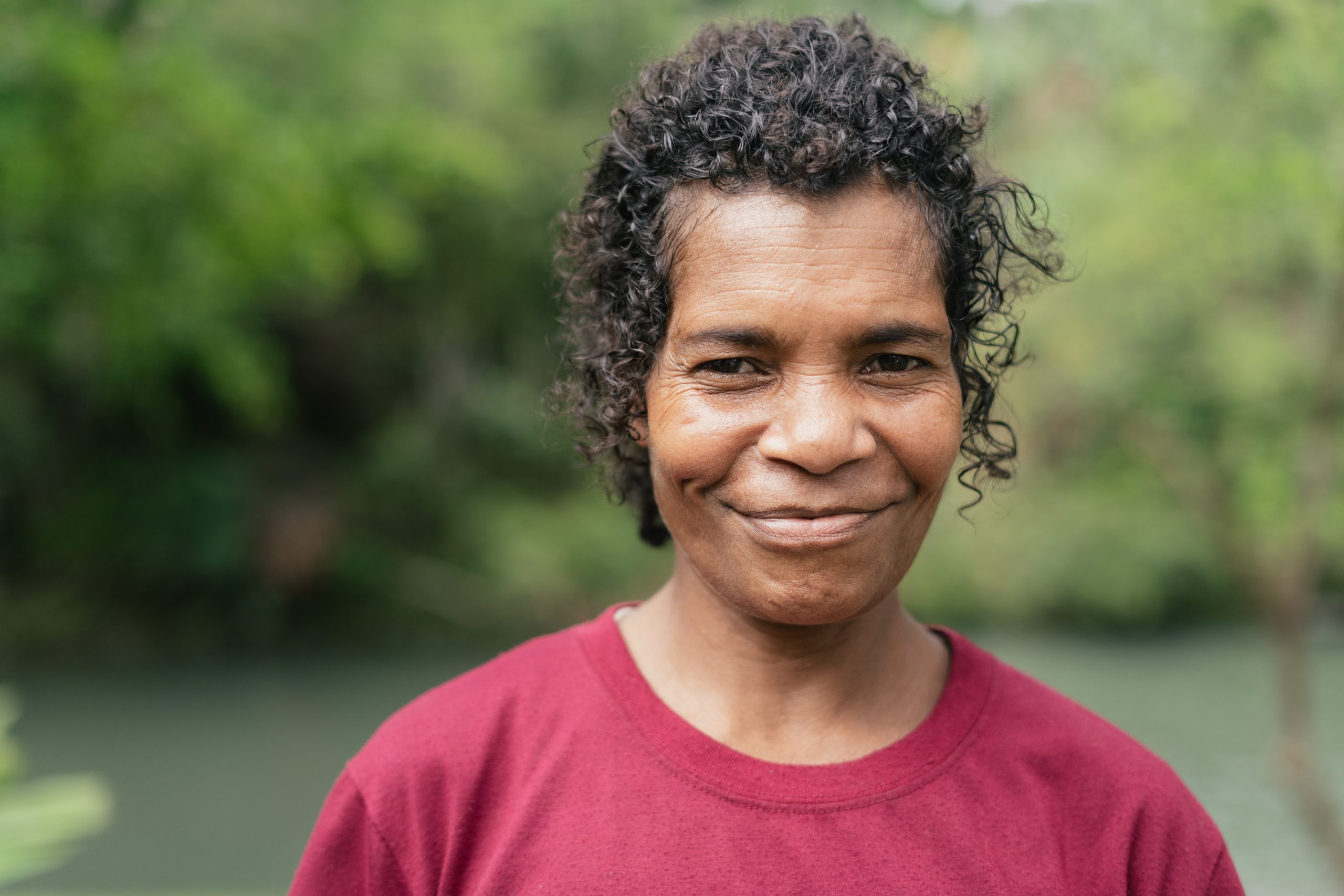

Women of the community of Sololo, Papua
Women and Water
In many rural parts of the world, it is the responsibility of women and children to collect water. This means walking long distances through dense forest to collect from wells, springs and rivers.
Our WASH project, designed and delivered in collaboration with Indigenous communities in Papua New Guinea, improves access to clean water and sanitation. Currently, the project is providing access to clean water for 3,000 people across four communities and two schools in Sololo and Gadaisu.
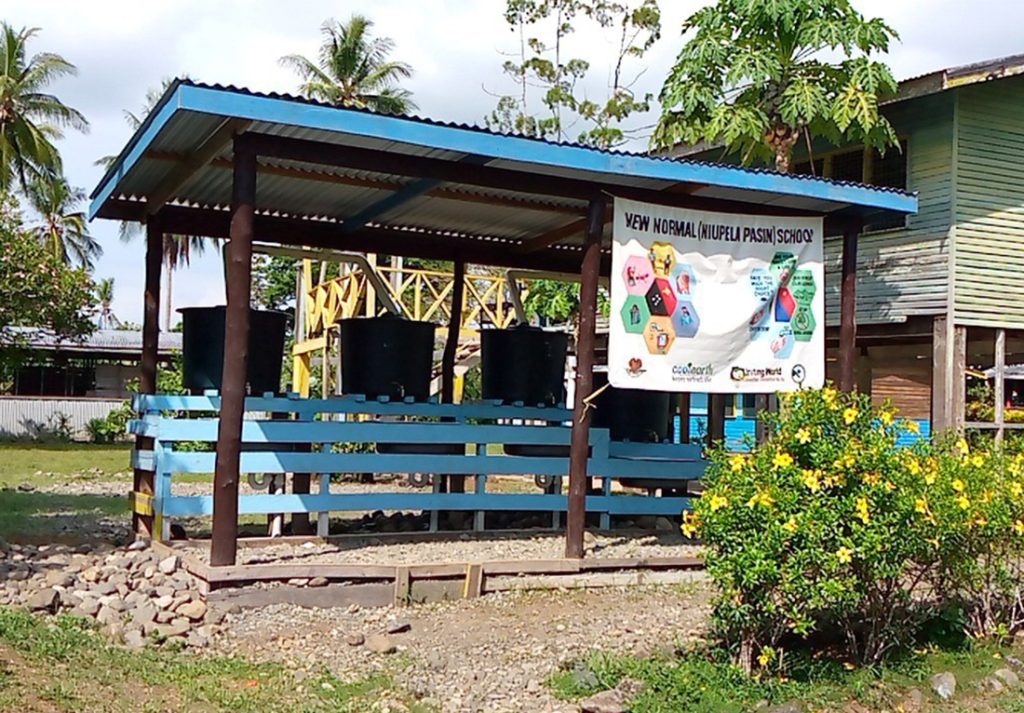

Water tanks installed at Nube Health Centre
Easy access to clean water takes the burden off women and children, saving hours each day where they would normally be walking long distances through dense rainforest to collect water.
Clean water also improves health, meaning less costly trips to hospitals. Health is expensive in Papua New Guinea and sometimes families have had to sell their rainforest land to afford treatment. Strong and healthy Indigenous communities are essential for maintaining resilient rainforests. If they go, the rainforests they live in will be next.
Nature Inspired Jewellery
From the Northern region of the tropical forest in Peru, AMARNO (Association of Women Artisans of the Northeastern Region) has dedicated over 15 years to revaluing the Awajún culture of their people through jewellery.
With the creation of necklaces, bracelets, keychains, and other items made from seeds of ancestral trees, they aim to improve the income of women in their community. Cool Earth actively supports this effort by supporting AMARNO’s presence at fairs, business conferences and national platforms to expand the reach of their work to more people.
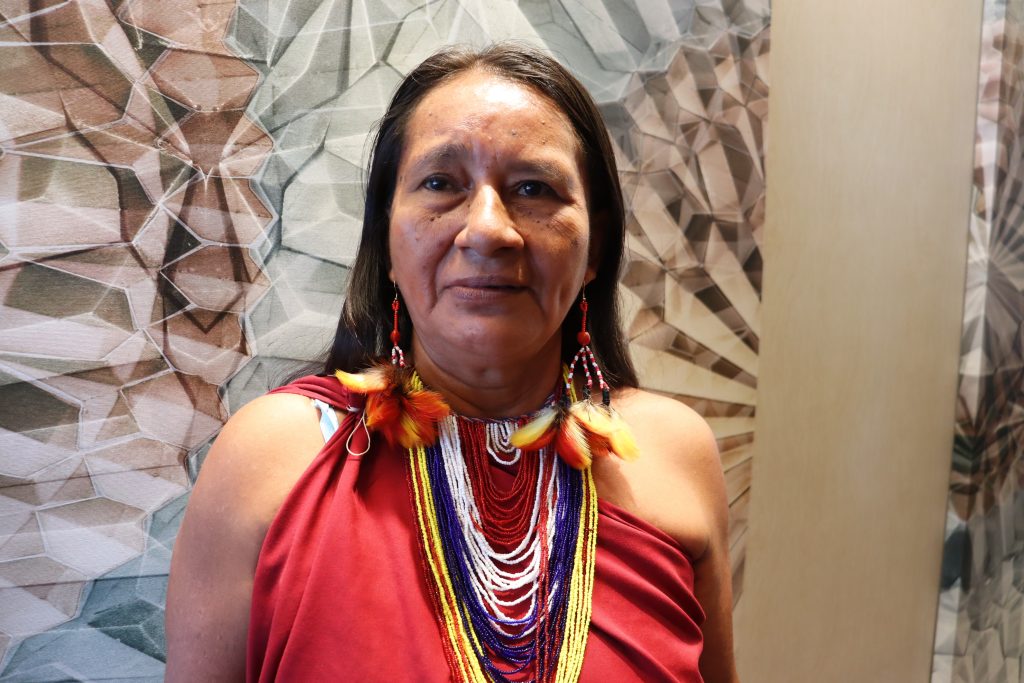

AMARNO artisans from the Awajún indigenous community
“The sale of these products generates income, but each craft has the story of our members behind it. Each woman has a family and economic situation, it is not easy for anyone to start a business, but thanks to the fact that they buy from us, the mothers who have their children studying can support them or buy medicine when their families get sick”, explains Rosa Paukain, leader of AMARNO.
As María Lopez Mishecre, the president of our partners OMIAASEC (Organisation of Indigenous Amazonian Ashaninka Women of the Central Peruvian Amazon) states: “The sisters within native communities must be aware of their rights and should be equipped with tools to enhance their economic development”. And, AMARNO are supporting Indigenous women in Peru to do just that.
A World-First Pilot, Led by Indigenous Women
Together with ONAMIAP (National Organisation of Andean and Amazonian Indigenous Women of Peru) and OMIAASEC (Organisation of Indigenous Amazonian Ashaninka Women of the Central Peruvian Amazon), we co-created the World’s first basic income pilot for Indigenous Peoples living in rainforests.
For the next two years, every adult in three communities in the Amazon rainforest will be receiving a regular income to sustain their needs.
The leadership of women in this project is vital as Indigenous women have oversight of the community as a whole, and are sensitive to their community’s needs.
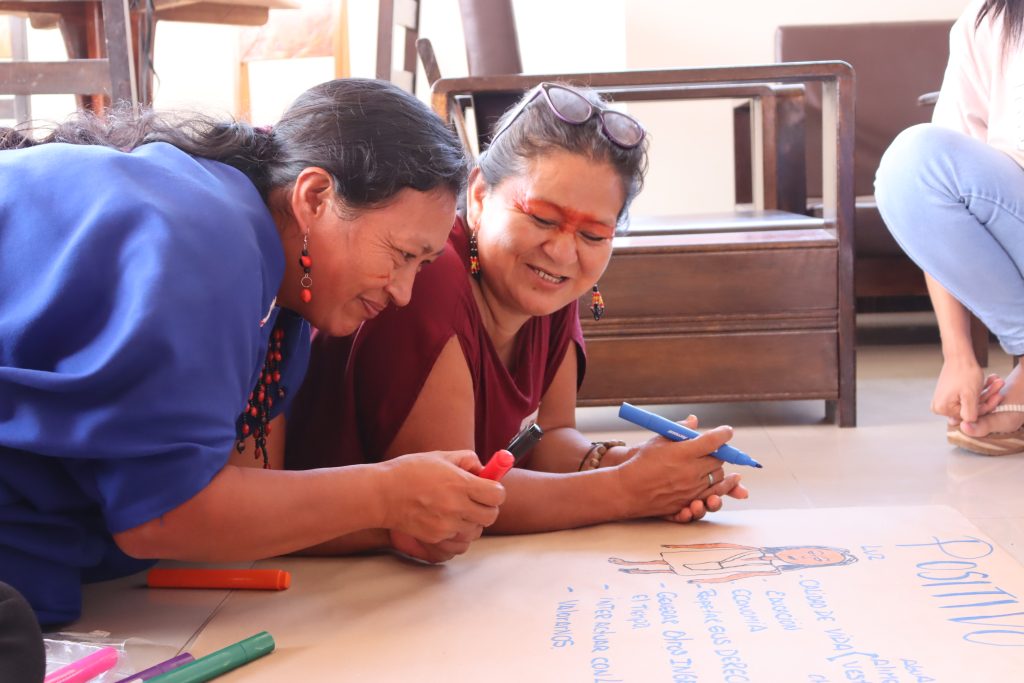

Ashaninka women who are part of the basic income pilot
We back strong Female Leadership
“You don’t know”. “You can’t”. “You’re a woman, you have nothing to teach anyone.”
Becky Chamorro is a project coordinator at OMIAASEC, an organisation dedicated to advocating for the recognition of Indigenous women’s rights and enhancing the resilience of their communities in the Peruvian Amazon. Their primary goal is to preserve ancestral practices and protect Indigenous territories.
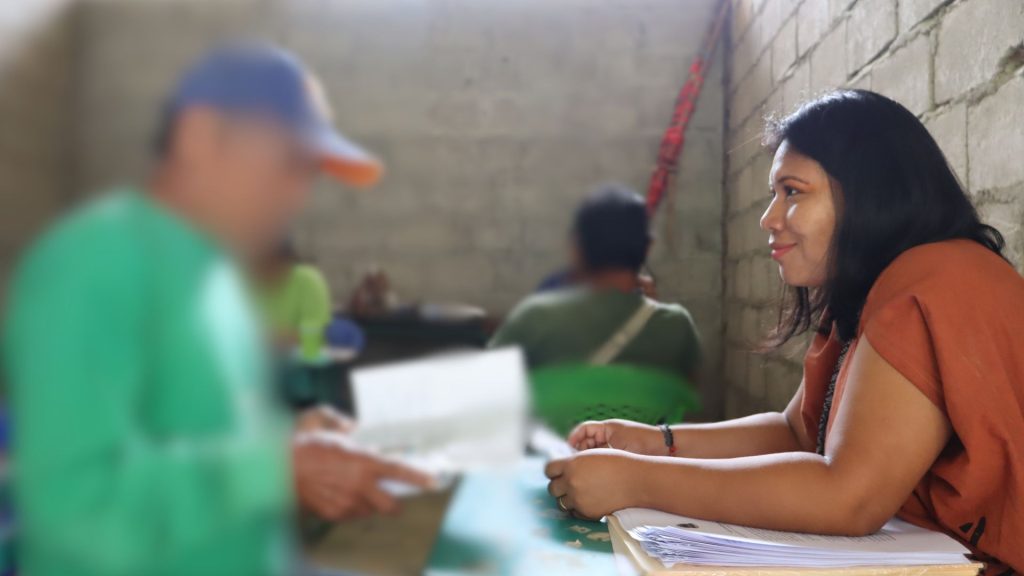

Becky Chamorro, OMIAASEC leader working on information processes in Indigenous communities
Being an Indigenous Asháninka woman herself, she tells us from her own experience that the above phrases are just some of the ways in which the violence and discrimination women experience manifests:
“It comes from our own families, our communities and the authorities themselves. This often sets us back. It is very common that women in native communities do not even like to go out, Indigenous women do not talk much, for fear of making mistakes or because they believe that their knowledge is not valuable or useful. Our goal is to achieve equity. We are capable of many things.”
Women like Becky, Rosa and Maria are tireless activists, fighting for a better future for Indigenous women around the world. Their deep sense of responsibility for future generations and the Earth stands out above everything, no matter what.
We stand with them, raising their voices. On International Women’s Day, and every day.
